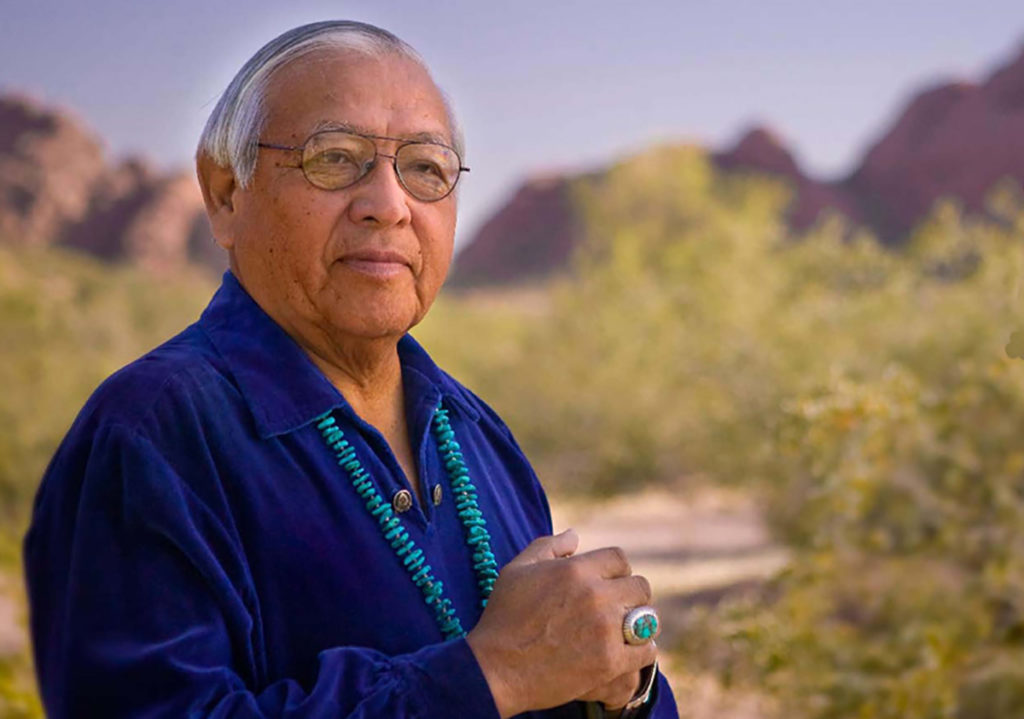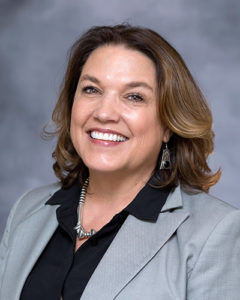And it all started with a need and a $100 bill
Early on in Tribal gaming, few Tribes had ever embarked on multimillion-dollar facilities, let alone building a casino or hotel. In states such as Arizona, there certainly weren’t any local construction firms specializing in these types of facilities. It was the “wild, wild west” throughout all of Indian Country as Tribes began to negotiate with states to start building their gaming enterprises and entering into major economic investments like never before. In many cases, out-of-state contractors came in charging exorbitant fees, and even some less credible, bad actors took advantage of a Tribe’s lack of knowledge and experience by providing shoddy construction and not allowing for local training and jobs. Forget sovereignty, it wasn’t just limited waivers, but many Tribes waived full sovereignty in order to entice contractors to bid on their work.
It took some strong leadership to understand that Tribes did have a say and needed the tools to be in control of their own economic development. Peterson Zah, the first Navajo President of Navajo Nation, was one of the visionaries and founders of the Construction in Indian Country (CIIC) program. At the time, Mr. Zah was serving as Special Advisor to the President on American Indian Affairs at Arizona State University and decided to pull together several Tribal and industry leaders to find ways to promote best practices, apply industry standards of construction and design and, more importantly, to “grow our own.”
The birth of the Construction in Indian Country program
One of those Tribal leaders, Jeff Begay, reached into his pocket and offered up $100 to help get the dream started, and nearly 20 years later we have the Construction in Indian Country (CIIC) program housed within the Del E Webb School of Construction at ASU. According to Mr. Zah, “It was also important to promote the use of available labor and local resources into the construction process. The conference also started as a way to resolve conflicts between the Tribes and non-Tribal entities. A way to get to the cause of what is going on between the two parties. We said a university like Arizona State University can become a peacemaker between the two entities. That was the birth of CIIC.”
Today, CIIC is a forum to provide excellence in teaching, research and service in and for the construction industry. This organization has defined construction to include all aspects of development impacting Tribes, including law, business, engineering, architecture, planning and management.
One of the things that makes this program unique is the community engagement and involvement with the industry partners who not only serve with their financial investment, but also dedicate top leadership from within their organizations to participate, which includes mentoring the students and providing internships throughout the year.
Intentional recruitment for Native and Indigenous students
CIIC is the only organization of its kind in the country affiliated with a top university’s Construction Management program that specializes in the intentional recruitment and support for Native and Indigenous students interested in construction careers. CIIC hosts a national conference each year that attracts hundreds from around the country to participate. One of the most popular offerings is the Construction 101-102 class that allows laypersons a basic understanding of construction vocabulary and overview of the processes so they are in a better position to understand their jobs.
Imagine your entire career as a school teacher, and suddenly finding yourself on your Tribal Council and being appointed to oversee a new $25 million Head Start building? You might know about teaching, but designing and building a school may not have been a skillset you’ve acquired in your career. The one-day class allows a participant to learn the basic concepts and vocabulary, understanding the stages and processes and giving them confidence to know how and when to ask questions and where to find the right resources for their project.
The conference includes workshops on indigenous planning and design, safety and training, TERO and workforce development, technology trends, legal and financial education. More importantly, it provides an opportunity for networking and sharing of Tribal and economic development trends from Tribal communities across the country.
Recently, several other universities have reached out to CIIC, asking about replicating the program within their schools of construction. According to Marcus Denetdale, the Program Chair for CIIC, “The very fundamentals of what CIIC is about and the intent of the founding elders, such as Mr. Zah, emboldens us as an organization to do whatever we can to help advance the lives of Native and Indigenous peoples everywhere, which includes helping to make this type of organization accessible to all.”
For more information regarding the CIIC program, the National CIIC Conference being held October 27-29, 2020, at Talking Stick Resort in Scottsdale, AZ, or participation in the Annual CIIC golf tournament, April 10, 2020, please go to https://ciic.construction.asu.edu or contact Marcus Denetdale, CIIC Program Manager, at marcus.denetdale@asu.edu.
Kari McCormick is currently serving a second term on the executive board, as well as chairing the annual conference. With nearly 20 years in the A/E/C industry, she has been an advocate for Indian Country and construction.


